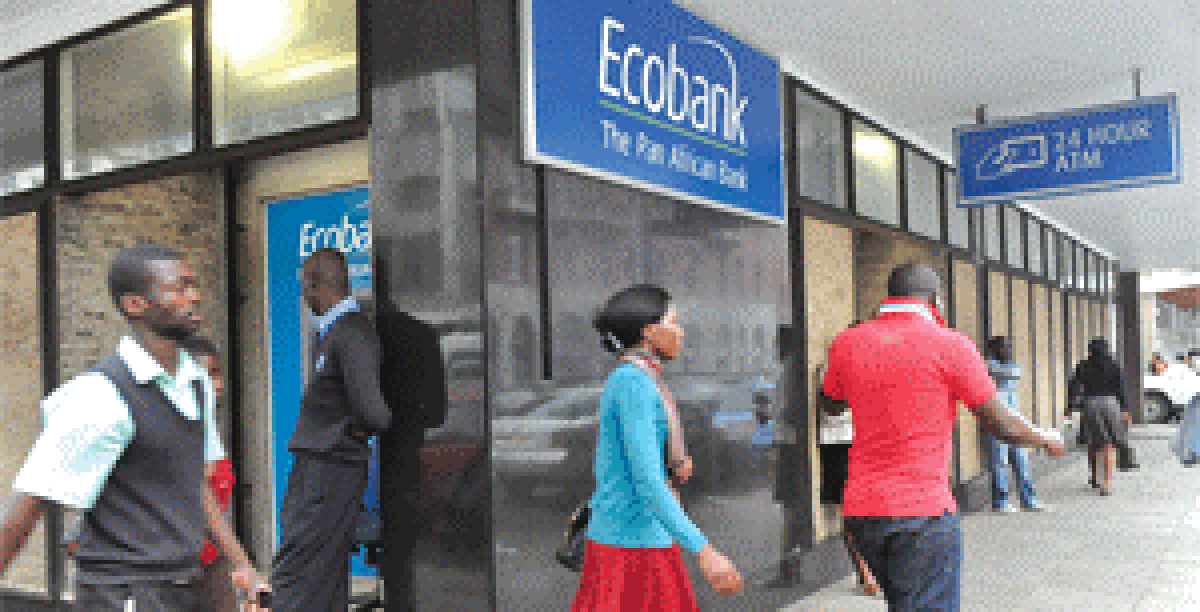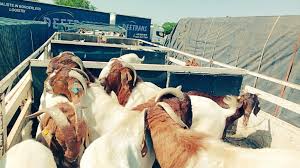Presidential Goat Scheme empowers communities
THE Presidential Goat Pass-on Scheme, which was launched by President Mnangagwa
last year, has so far benefited about 300 households in Matabeleland North and South
and improved resilience in the face of challenges.
The programme has so far managed to distribute goats to 4 400 households around
Zimbabwe, which has resulted in a 14 percent growth in production from 4 259 176 in 2021 to 4 891 787 goats in 2022.
The Presidential Goat Pass-on Scheme is part of the Government’s timely interventions
to accelerate Rural Development 8.0 in line with the push to achieve an upper middleincome economy by 2030.
The Presidential Goat scheme aims to distribute 632 000 goats with improved genetics
across the country.
Under the scheme, each of the 35 000 villages in the country will receive one buck and 17
does for distribution to vulnerable families in every village.
At the launch of the scheme in Chipinge last year, President Mnangagwa said the launch
was a significant milestone and key indicator of the Second Republic’s resolve to improve thewelfare and livelihoods of Zimbabweans, especially those in the rural areas.
The country is experiencing climate change, resulting in droughts, floods, pest
outbreaks, food shortages and increased vulnerability to shocks.
In response, the Government through the Livestock Growth Plan has increased focus on
building the resilience of smallholder farmers to climate change through the
implementation of climate change adaptation strategies in the agriculture sector.
Goat species with unique browsing potential adapt to a changing climate more readily
than other ruminant species.
In Matabeleland North Province, villagers in Gadadi Village, Ward 5 in Umguza District
have welcomed the scheme, and they are optimistic that in no time they will be out of the
doldrums of poverty.
Last year, Gadadi villagers received word from a local Agritex officer that there was going
to be a Presidential Goat Scheme distribution in the district targeting vulnerable
households.
The provincial launch was held in Umguza in November last year with a total of 174
farmers receiving 174 goats, comprising 31 bucks and 143 does.
The beneficiaries comprising 120 females and 54 males are drawn from vulnerable
households from wards 3, 4, 5, and 6 in the area.
One of the beneficiaries, Mr Moffat Moyo said he is looking forward to transforming his
life through the scheme.
“This programme is helping us as farmers to be counted among others. I really embrace
this programme and I can now be counted among men because I now have livestock,
which will ultimately be my springboard to generating wealth,” he said.
Agritex
“Surely, the President is a man of his word and when he came up with the philosophy
‘leaving no one and no place behind’ he meant exactly that and this programme is
testimony to this.”
Mrs Sithokozile Tshuma, who lives with her physically challenged grandson, thanked
President Mnangagwa for keeping its promise of leaving no person and no place behind.
“As long as the goats breed, I know that in no time my kraal will be full of goats. This is a
timeous intervention from the President and some of us never thought that we would
own goats,” she said Ms Gift Nyathi, whose husband died in 2012, said the programme
has economically empowered her.
“The Presidential Goat Scheme is good as some goats have given birth to kids. I believe
that by the end of the year, they will be more,” she said.
Mrs Elizabeth Chirwa said the goat scheme has ignited hope for her as she will be able to
fend for her 10-member family.
The Agricultural Rural Development Authority (Arda)
“The goat that I received under the scheme was of good quality. Unfortunately, it died
after giving birth to a kid and I’m looking forward to growing my herd and helping my
family,” she said.
The Agricultural and Rural Development Advisory Services (ARDAS) director for
Matabeleland North, Mr Dumisani Nyoni said the Presidential Goat Scheme will help
mitigate the effects of climate change.
“Grazing land in villages, for example in Umguza, is scarce and when rearing livestock,
we concentrate on small livestock like goats and sheep. This is because with a small piece
of land, these animals have high returns and the expenses of keeping the goats are low as
compared to cattle,” he said.
Mr Nyoni said there is a high demand for goat meat, yet the supply side is not providing
enough for the market.
Mr Dumisani Nyoni
“When you go to butcheries or shops, you may come across goat meat by chance, but the
next time you visit the meat will be finished. Also, the farmer can benefit from the goats,
as the farmer can sell some of the goats and eat some with their family,” he said.
“So with goats, there is a nutrition component and a cash component which in turn will
enable the farmers to take their children to school.”
Mr Nyoni said the Presidential Goat Scheme, will help alleviate poverty in rural
communities.
In Matabeleland South Province, so far a total of 150 households in Lutumba area in
Beitbridge benefited from the Presidential Goat Scheme. They received a total of 167
goats, most of them does. Some beneficiaries got one each while others got two.
President Mnangagwa
Acting ARDAS director for Matabeleland South, Mr Mkhunjulelwa Ndlovu said extension
officers are constantly engaging the farmers to ensure proper care of the goats.
He said the goats are expected to start producing kids in June. Mr Ndlovu said by end of
the year, 80 percent of the 167 goats would have given birth to at least two kids or more.
“A total of 150 households from Lutumba area benefited from the Presidential Goat
Scheme in October last year among them, traditional leaders. The goats were young so
they are expected to start giving birth in June,” said Mr Ndlovu.
“Before the goats were distributed farmers received training in goat health, goat
nutrition, goat rearing, and goat husbandry. Farmers have also been giving back
feedback on the state of their animals. They have also received fodder legume seeds and
tick grease under the Presidential tick grease programme.”
To consolidate its intentions of empowering the rural population, the Government is
encouraging the adoption of a business approach to farming and has since invested
US$87 million in the launch of the goat scheme that is meant to give the rural population
access to a goat herd that can compete.
With a growing national herd of four million goats, its successful production can be a
viable export option for the resuscitation of the meat export business in Zimbabwe.
According to Trade Map, the global market demand for goat meat increased from US$6,9
billion in 2017 to US$8, 6 billion in 2022. Recent trends show an increased demand for
dairy products from goats, particularly in developed countries where they act as a
substitute for dairy products from large ruminants for human dietary needs as eating
habits transition to more sustainably developed food.-The Chronicle











